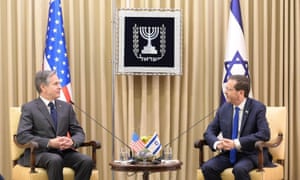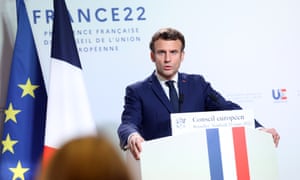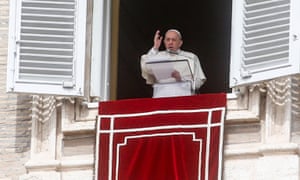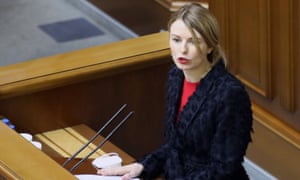10:01
At the bustling tea stands and roadside eateries of Delhi, European politics is not a regular topic of conversation.
But with wall-to-wall coverage of the war in Ukraine on television and in the newspapers, petrol prices rising and pressure growing on the prime minister, Narendra Modi, to denounce Russia, Indians are starting to grapple with the consequences of the conflict 2,800 miles away.
Ram Agarwal, a shopkeeper, does not condone the loss of civilian life but nor can he bring himself to criticise Russia. He grew up in the 1950s and 60s when India and the Soviet Union were such close allies that Nikita Khrushchev coined the slogan “Hindi Rusi bhai bhai” (Indians and Russians are brothers).
“I am 74 and my generation grew up with Hindi Rusi bhai bhai. It’s like attacking a dear old friend,” he said.
Arvind Maurya, an electrician, also expressed the even-handedness that has marked much of the public response. “I hear that Ukraine used to be a part of Russia, but instead of respecting that, Nato is pulling Ukraine into its own orbit. But war is never good for anyone and the Russian bombing of civilians is not the way to solve these differences. They must sit down and talk,” he said.
But away from the street, feelings are stronger. Indians from the right and left have converged on the war, the former because of their antipathy towards western culture and the latter because of their anti-Americanism, particularly in relation to foreign policy.
06:49
A UK cabinet minister has distanced the government from Joe Biden’s call that Russia’s Vladimir Putin “cannot remain in power” amid criticism that the comment could bolster the Kremlin.
Nadhim Zahawi, the education secretary, said it was “for the Russian people to decide how they are governed” after the unscripted remark from the US president during a speech in Poland, which the White House later said was not a call for regime change.
“I think that’s up to the Russian people,” he told Sky’s Sophy Ridge on Sunday. “The Russian people, I think, are pretty fed up with what is happening in Ukraine, this illegal invasion, the destruction of their own livelihoods, their economy is collapsing around them and I think the Russian people will decide the fate of Putin and his cronies.”
Biden’s comments came as Russia fired missiles aimed at the western Ukrainian city of Lviv, 40 miles from the Polish border. The city is the most pro-western in the country and the base of many western journalists. Analysts described the attacks as intending to send a clear signal to the White House.
Biden described Putin as a “butcher” and told an audience in Warsaw that the west must steel itself “for a long fight ahead”.
Updated
06:36
It was the kind of spring day in Mayfair they used to write songs about. Beneath a cloudless sky daffodils were blooming in Hyde Park. Blue and yellow, the colours of Ukraine.
Everything seemed to be blue and yellow: the Euro Car Parks sign, the police vans and motorcycles, and the hi-vis jackets their occupants wore, but most obviously the hundreds of flags held aloft by those gathered beneath the Park Lane Hilton for the London Stands With Ukraine march to Trafalgar Square.
It was not a typical anti-war crowd. With the conspicuous exception of Peter Tatchell, it lacked that class of seasoned protesters that fill out these occasions. Neither Stop the War nor CND, which both want the UK to stop arming the besieged Ukrainians, was behind the event. Instead it was the mayor of London, Sadiq Khan, who called for the protest, supported by the decidedly unradical European Movement (president: Michael Heseltine).
Rachel, a middle-aged woman wearing a Roger Waters T-shirt, said it was the first demonstration she’d ever been on. “I’m from East Molesey, near Hampton Court,” she said. “It’s not known as a hotbed of protest.”
She had come because she was upset and appalled by what was going on in Ukraine. “Maybe it’s naive, but I hope that if Putin sees enough of the world protest, maybe he will stop.” She pulled a face, as if to suggest that this was a long shot.






